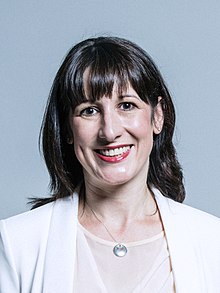MPs call for break-up of “Big Four”
The influential Business, Energy and Industrial Strategy (BEIS) Committee of MPs has publicly endorsed the recommendations made last year by a Competition and Markets Authority (CMA) report on the reform of the audit industry, and have even called for a break-up of the so-called “Big Four” accountancy firms.
Deloitte, EY, KPMG and PwC conduct 97 per cent of big companies’ audits while also providing them with other services, a state of affairs that was slammed in the CMA report that proposed an internal split between the two functions.
But now MPs are calling for a full structural break-up of the firms.
The CMA’s review, released on 2 April, follows high-profile company collapses such as construction firm Carillion, which was audited by KPMG.
The MP’s intervention comes on the same day that the Financial Reporting Council (FRC) announced it had opened a new investigation into KPMG’s audit of Carillion.
The FRC said it will carry out an assessment of the governance, controls and culture within KPMG’s audit practice, in the wake of its ongoing investigation of the firm’s auditing of collapsed auditor Carillion and the ‘unacceptable’ deterioration in quality highlighted in its annual quality review.
In December last year, the CMA recommended a split between audit and advisory businesses, with separate management and accounts; more accountability for those appointing auditors, with the aim of strengthening their independence, and a “joint audit” system, with a Big Four and a non-Big Four firm working together on an audit.
In its own report, the BEIS Committee endorsed the CMA’s proposals, but said a full break-up of the Big Four would “prove more effective in tackling conflicts of interest”.
All four auditors worked for Carillion before it failed, throwing 19,500 jobs into doubt and leaving vital contracts with schools and hospitals in danger of collapsing.
The MPs said Carillion should have been ordered by its auditors to rein in payments to shareholders before it called in administrators at the start of last year after running out of cash. Instead, the outsourcer paid £333m more in dividends than it earned in profits in the five-anda-half years to June 2017.
Rachel Reeves, who chairs the committee, said “We must not wait for the next corporate collapse.”
She added: “For the big firms, audits seem too often to be the route to milking the cash-cow of consultancy business.
“The client relationship, and the conflicts of interest which abound, undermine the professional scepticism needed to deliver reliable, high-quality audits.”
The MPs also recommended that there should be a pilot scheme of joint audits for the most complex cases, “to enable the challenger firms to step up”.
It also called for more effort by auditors to tackle fraud at companies.
“In light of the failings at Patisserie Valerie, audits must state how they have investigated potential fraud, including by directors,” the committee said.
Cafe chain Patisserie Valerie fell into administration in January. Its accounts were found to have been overstated by £94m, according to its administrators KPMG.
The former finance director of the chain, Chris Marsh, is under investigation by the Serious Fraud Office.
KPMG said it was co-operating fully with the various inquiries under way into the audit system.
A spokesperson for the firm said the BEIS Committee’s report showed that “trust in audit is in urgent need of repair”, adding: “We have been open about the need for change and we want to play a leading role in building a strong, sustainable and trusted audit sector for the future.”
Deloitte’s UK managing partner for audit, Stephen Griggs, said: “We welcome many of the [BEIS Committee] recommendations, including extending the scope of the audit and better regulation of audit, but we have concerns about a potential structural split.
“This will be detrimental to audit quality and could materially damage the UK’s competitive position as a leading capital market.”





